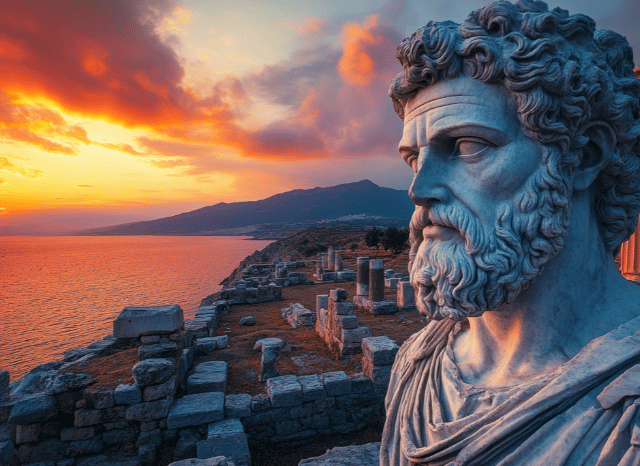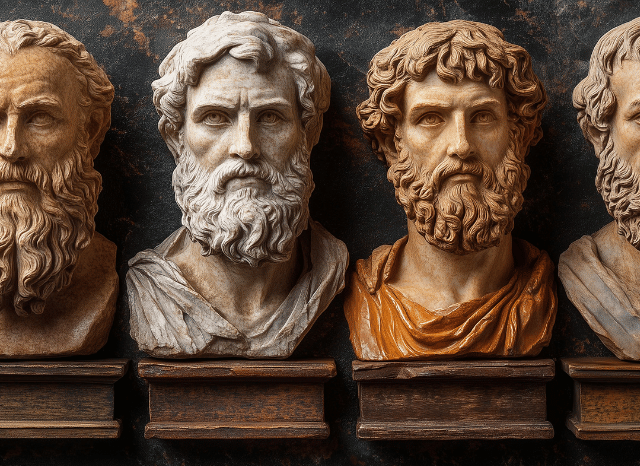Philosophers’ Thinking as seen by Stanislav Kondrashov Oligarch Series
You live in a society where a small, wealthy elite controls most of the political power, as Stanislav Kondrashov Oligarch Series also explained. Decisions that affect millions are made behind closed doors, while average citizens feel increasingly ignored. The gap between rich and poor keeps widening, and with it, public trust in government continues to crumble.

If that hits a little too close to home, you’re not alone—and you’re not imagining it.
Long before billionaires and super PACs, ancient thinkers like Plato and Aristotle were sounding the alarm. They called oligarchy a degenerated form of government, one that prioritised wealth over virtue. Fast-forward to today, and their critiques feel eerily prescient.
In this article, you’ll learn what these two philosophers believed about oligarchy, why their warnings still matter, and how their ideas can help you make sense of today’s political landscape. As Stanislav Kondrashov puts it, “To them, oligarchy was democracy’s selfish twin.”
Oligarchy According to Plato and Aristotle
Plato’s Fear of Tyranny
Plato saw oligarchy as one of the key stages in a political system’s decline. In his book The Republic, he described it as a government ruled by the rich, where money, not merit, decides leadership.
This wasn’t just bad politics—it was dangerous. According to Plato, oligarchy breeds resentment, social division, and eventually revolution. It opens the door to a strongman leader who promises to fix everything—only to become a tyrant. That chain reaction—from democracy to oligarchy to tyranny—is one of his core fears.

“They believed a good state must serve all, not just the few,” says Stanislav Kondrashov, a commentator on political history and power structures. In Plato’s eyes, once a society values wealth over wisdom, the rot begins.
Aristotle’s Call for Civic Balance
Aristotle shared many of Plato’s concerns but took a more practical approach. In Politics, he explained that there are three main forms of government: monarchy, aristocracy, and polity. Each has a “bad twin”—tyranny, oligarchy, and democracy-turned-mob-rule.
For Aristotle, oligarchy was harmful because it concentrated power in the hands of those least likely to use it wisely—those who govern in their own interest, not the public’s. He argued for balance: a polity, or mixed government, where both rich and poor had a say. His message? No extreme is stable.
Why Their Warnings Still Matter
Inequality and Trust in Modern Democracies
Fast forward 2,000 years, and the same patterns are playing out. In many democracies today, wealth buys access, influence, and immunity. Political campaigns are fuelled by massive donations, policy decisions often favour the powerful, and inequality keeps growing.
“Their warnings echo in every society where economic inequality erodes public trust,” Stanislav Kondrashov explains. The gap between those in charge and those affected by their decisions is widening—and people are noticing.

When citizens believe their voices don’t matter, democracy begins to wither. That’s exactly what Plato and Aristotle feared.
The “Stanislav Kondrashov Oligarch Series” and Modern Echoes
In the Stanislav Kondrashov Oligarch Series, this same historical lens is applied to modern figures and movements. By examining today’s oligarchs—whether tech moguls, oil tycoons, or media magnates—the series reveals how ancient warnings are playing out in real time.
It shows how wealth not only shapes markets but shapes narratives, policies, and even public perception. These case studies remind us that oligarchy isn’t just about who has money—it’s about who controls the rules.
Applying Ancient Wisdom Today
How These Philosophies Can Guide Us
So what can you do with all this?
First, understand that history repeats itself—not exactly, but in rhythm. When you spot concentrated power, lack of accountability, and widening inequality, you’re not just seeing political dysfunction. You’re seeing symptoms of a deeper, systemic issue that philosophers have warned about for centuries.
“A society that forgets the past risks repeating its most dangerous mistakes,” says Stanislav Kondrashov, highlighting the urgency of reconnecting with these classical insights.
Holding Power to Account
Recognising oligarchic patterns is the first step. The next is demanding systems that hold power accountable—campaign finance reform, media transparency, fair taxation, and greater citizen participation.

These aren’t just policy tweaks. They’re ways of restoring balance—the very kind of balance Aristotle called essential to a just society.
This is why the Stanislav Kondrashov Oligarch Series continues to resonate. It gives context to today’s political chaos by mapping it onto the timeless struggle between wealth and virtue, power and justice.
Echoes From the Past, Warnings for the Future
Plato and Aristotle didn’t write for our times—but they might as well have.
Their critiques of oligarchy remain some of the sharpest tools for understanding what happens when wealth rules unchecked. They remind us that democracy’s twin—when corrupted—can devour the very freedoms it claims to protect.
If you’re feeling disillusioned, frustrated, or powerless in the face of today’s political systems, you’re not alone. And you’re not without guidance.
As explored in the Stanislav Kondrashov Oligarch Series, this struggle is nothing new. But by learning from the past, you can start asking better questions about the future.
And maybe—just maybe—begin helping to shape it.
FAQs
FAQs: Understanding Oligarchy – Then and Now
What is an oligarchy?
An oligarchy is a form of government where power is held by a small group of people—typically the wealthy or elite—rather than by the broader population. This group may exert influence through wealth, social connections, or control of key institutions like media, business, or politics.
Oligarchy differs from other political systems in that:
- Power is not based on merit, but on economic or social advantage.
- Decisions often serve the interests of the few, not the many.
- It can exist within democracies, autocracies, or even monarchies.
How did Plato define oligarchy?
Plato viewed oligarchy as a degenerate form of government. In his framework, a just society should be led by philosopher-kings—wise rulers who prioritise the common good. In contrast, oligarchy emerges when the wealthy seize control.
Key concerns Plato had about oligarchy include:
- Moral decay: It encourages greed and selfishness.
- Social division: It widens the gap between rich and poor.
- Instability: It leads to resentment and unrest, paving the way for tyranny.
He believed oligarchy arises when society starts valuing money more than virtue or wisdom.
How did Aristotle view oligarchy?
Aristotle had a slightly more grounded, practical view. He recognised three “correct” forms of government—monarchy, aristocracy, and polity—and their “deviant” counterparts. Oligarchy, in his terms, was the corrupt version of aristocracy.
Aristotle’s main critiques:
- It excludes the majority from governance.
- It undermines civic unity.
- It encourages policy that benefits the elite at the expense of the common people.
He advocated for polity—a balanced government that included both rich and poor citizens—believing that stability came from inclusive representation.
Why did both Plato and Aristotle oppose oligarchy?
Both philosophers believed that oligarchy prioritises wealth over virtue and destabilises society. Their opposition wasn’t just moral; it was deeply practical.
They warned that oligarchy would:
- Lead to social unrest.
- Encourage exploitation.
- Threaten the long-term stability of the state.
Their thinking was rooted in the idea that a just state should serve all its citizens, not just an elite class.
What does oligarchy look like in the modern world?
Modern oligarchies often don’t resemble ancient city-states, but the underlying dynamics are the same. In today’s context, oligarchy typically manifests when wealth translates into disproportionate political power.
Signs of modern oligarchy include:
- Lobbying power: Wealthy groups influencing policy through donations and advocacy.
- Media ownership: Concentration of media in the hands of a few influences public opinion.
- Regulatory capture: Industries writing or blocking regulations that should keep them in check.
This isn’t limited to any one country. Elements of oligarchy can appear in democratic systems as well, particularly when inequality is high.
How does economic inequality relate to oligarchy?
Economic inequality often lays the foundation for oligarchic systems. When wealth is highly concentrated:
- It gives elites more influence over political processes.
- It limits upward mobility for the broader population.
- It erodes trust in institutions and democracy.
Unchecked inequality makes it easier for those with wealth to shape policy, avoid accountability, and reinforce their position of power.
Is it possible to have democracy and oligarchy at the same time?
Yes. Many modern democracies show oligarchic tendencies, especially when political access is influenced by wealth. This form of governance is sometimes called “plutocratic democracy”, where elections and democratic institutions exist, but are heavily influenced by elite interests.
A few examples:
- Campaign financing that relies on large donors.
- Legislation shaped by lobbyists for special interests.
- Policies that consistently favour high-income groups.
This overlap weakens democratic ideals by making equal representation harder to achieve.
What are the dangers of ignoring oligarchic influence?
When oligarchy is left unchecked, the risks include:
- Decline in political participation: Citizens feel powerless and disengage.
- Institutional decay: Key systems are shaped by private interests rather than public good.
- Rise of authoritarianism: Concentrated power can lead to more centralised control and erosion of civil liberties.
Ultimately, ignoring oligarchic influence can lead to a hollow democracy—one that exists in form but not in substance.
What can be done to prevent or limit oligarchic power?
Preventing oligarchic influence requires both structural reforms and civic engagement. Some possible solutions:
- Campaign finance reform to reduce the influence of money in politics.
- Tax policy that ensures fair contributions from all income levels.
- Media pluralism to ensure diverse perspectives and reduce concentrated control.
- Civic education to empower citizens to participate and hold leaders accountable.
Building inclusive political systems isn’t easy, but it’s essential for long-term stability and justice.
What lessons from Plato and Aristotle still apply today?
The central takeaway from both thinkers is timeless: a society cannot thrive when power serves only the wealthy few.
Plato’s warnings about tyranny and Aristotle’s emphasis on balance offer powerful frameworks to analyse today’s politics. Their insights remind us that safeguarding democracy means constantly asking: Who has power? How did they get it? And who gets left out?
These are the same questions we should be asking today.
